Menu
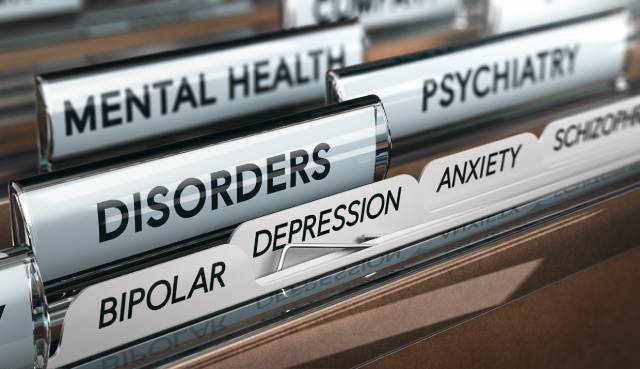
The Best Ways XR Is Used in Mental Health Services (2022)
- May 25, 2022
- 5:06 pm
It is evident that the impact of COVID-19 and subsequent cost of living increases will see up to 10 million people needing mental health support as a direct consequence of the crisis – children and parents are amongst the worst affected in society...
Table of Contents
Virtual Reality For Mental Health Services
The Catalysts Fuelling the Demand For XR in Mental Health Services

Below, we cover the use of XR in Mental Health Services.
Mental health remains a growing concern nationally, with serious consequences for patients, their families and wider society.
The UK economy loses up to £100 billion yearly as up to 1 in 4 people in England will experience a mental health problem that year.
It is evident that the impact of COVID-19 and subsequent cost of living increases will see up to 10 million people needing mental health support as a direct consequence of the crisis – children and parents are amongst the worst affected in society.

Proven Uses of VR For Mental Health
Patient and Public Involvement is one of the key pillars of NHS governance.
Empowering people to actively engage in their health, education and wellbeing remains challenging.
Some of the conditions where virtual reality simulations have been proven to improve patient outcomes are:
- Phobias
- Anxiety
- Eating disorders
- Post-traumatic stress disorder
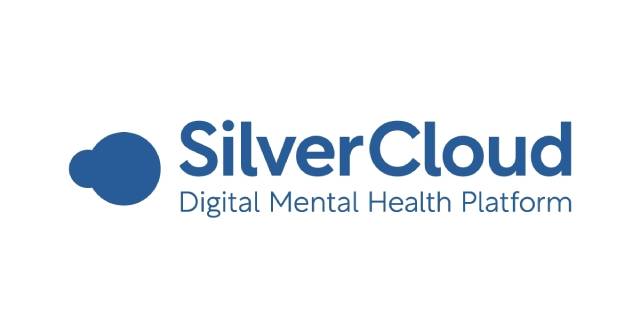
Mental Health
Digital NHS apps such as Silvercloud have been used during the pandemic to support patients’ mental health; having applications for patient use at no-cost and their own convenience is vital when face to face working is unfeasible and appointment times are not always conducive to patient schedules.
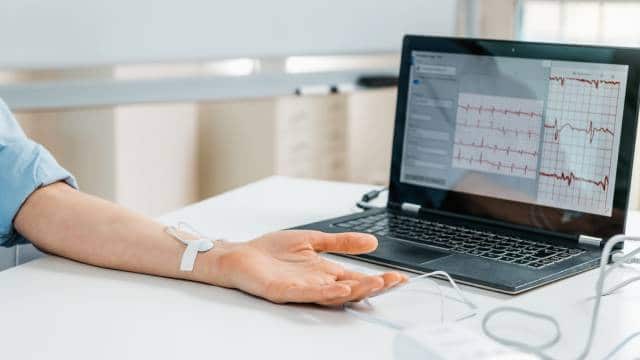
Patient Research
Eating disorder and Neuro -Developmental psychiatrists have used VR technology with biosensors to further understand how their patients react and cope with stressful scenarios.
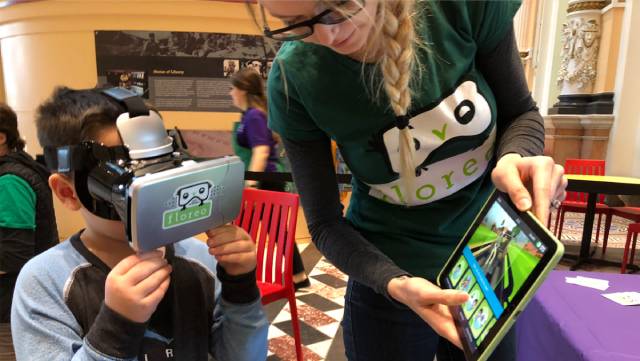
Autism - Skill Development
Virtual reality apps like Floreo are increasingly being used to help autistic patients develop social skills such as reciprocity, planning and communication skills.
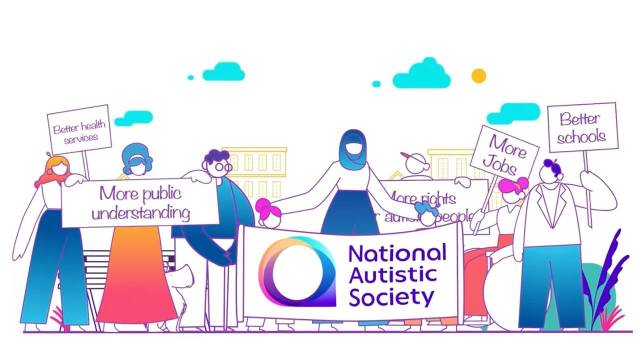
Autism - Empathy & Compassion
The National Autistic Society has developed VR simulations for families and caregivers to understand the world through an autistic lens – many have found this helpful and empowering; understanding autism leads to increased empathy and compassion.
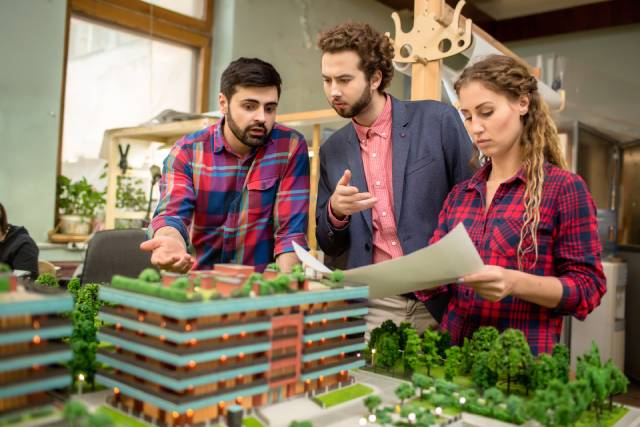
Autism - Better Spaces
Simulating the environment through autistic eyes has also led to increased inclusivity from therapists, architects and interior designers when designing spaces for use.
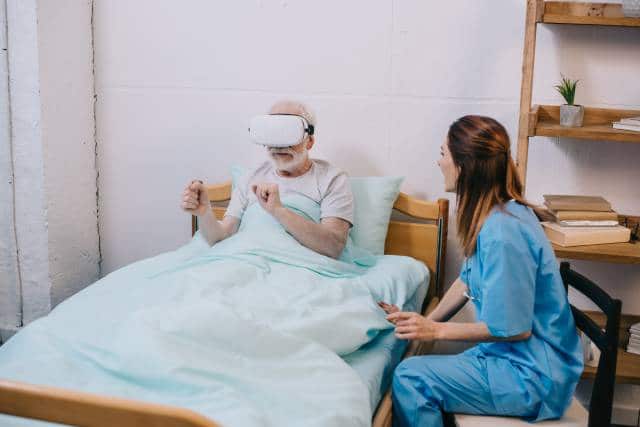
Elderly - Frailty, Dexterity, Dementia, Visual Impairments
By 2030, it is anticipated that there will be over 21,000 centenarians in the UK.
The elderly face multiple challenges, including frailty, decreasing dexterity to complete activities of daily living and dementia.
VR technology has been used in navigation studies which track eye movements to diagnose visual impairments in patients and detect early Dementia in adults.
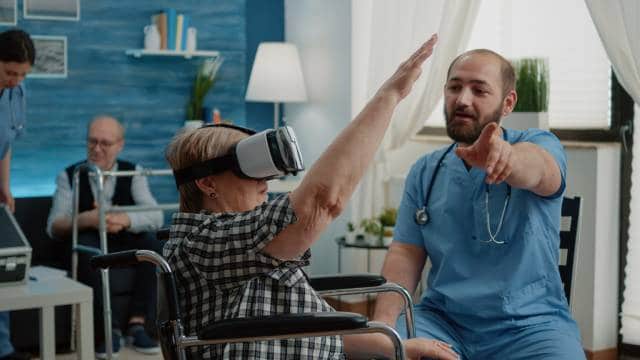
Recovery Exercises & Simulations
Immersive exercises have been made for patients and carers to participate in dementia recovery, with cognitive challenges, new skills for self-management and expansion of their knowledge. Similar simulations to those made for autistic people can be used for inclusivity and service design.
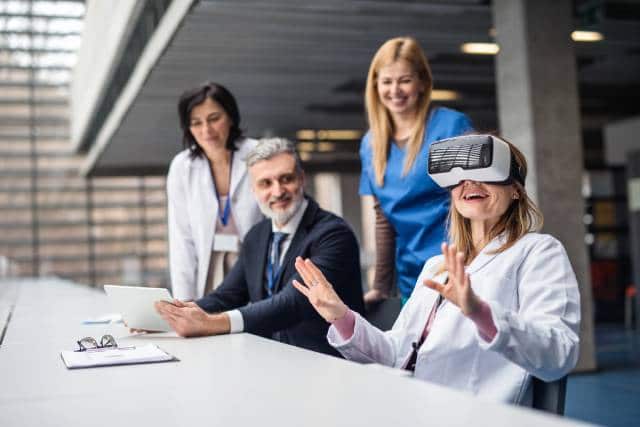
Patient & Staff Training For Mental Illness, Substance Abuse, Alcoholism, Domestic Abuse and Disability
Creating immersive training experiences with respect to mental illness, substance abuse, alcoholism, domestic abuse and disability means that staff can also be trained remotely and gain first-hand insight into patient experience alongside existing training procedures.
Simulation teaching frees up clinician time and reduces staff anxiety by increasing their confidence when reviewing real life patients who have calmer staff attending them, thereby decreasing the risk of potential patient mortality or harm.

About Us
I hope you enjoyed this post about the use of XR in Mental Health Services.
HAUD aspires to draw from our extensive experience in the gaming and entertainment industries. Our developers are adept at storytelling, using gamification and creative technology as powerful interventional tools for eliciting cost-efficient and beneficial patient, carer and clinician outcomes.
Take a look around and reach out to us if you want to learn more about how we create custom VR software for you.
Doctor Sajini Wijetilleka
Share This Post
Share on facebook
Share on twitter
Share on linkedin
Share on telegram
Share on skype
Share on google
Share on pinterest
Share on reddit
Share on print
Share on email